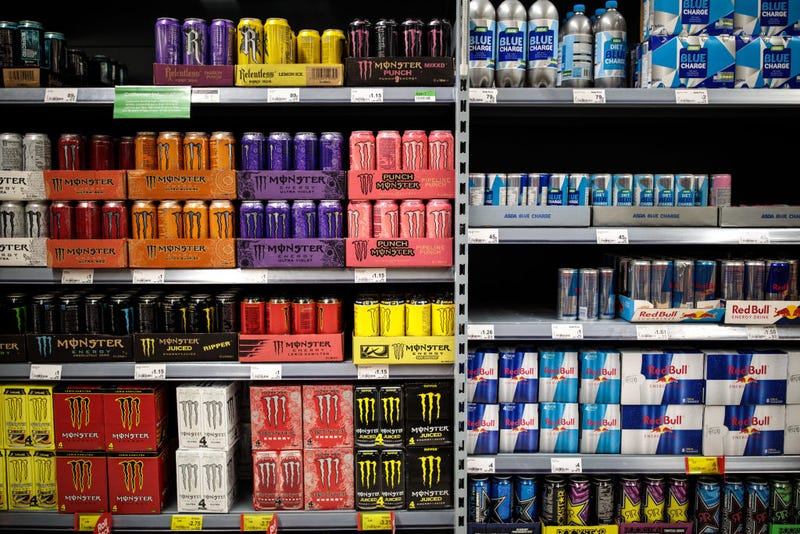
You may want to think twice the next time you go reaching for an energy drink when you need a pick-me-up.
A new study shows energy drinks have been linked to a number of harmful health effects, including depression and anxiety -- particularly among children and young adults.
According to a systematic research review published in the journal Public Health, energy drinks are associated with an increased risk of mental health issues among children and young people, including anxiety, stress, depression and suicidal thoughts.
"Energy drinks are marketed to children and young people as a way to improve energy and performance, but our findings suggest that they are actually doing more harm than good," lead author Amelia Lake said in a statement. "The evidence is clear that energy drinks are harmful to the mental and physical health of children and young people as well as their behavior and education."
Energy drinks are beverages with high levels of caffeine. They are usually marketed as giving a mental and physical "boost" by providing more "energy" than regular soft drinks. According to the study, caffeine levels in a can of energy drink can vary between 80mg (equivalent to two cans of cola) and 200mg (equivalent to five cans of cola).
For the review, researchers in the U.K. looked at data from 57 studies of more than 1.2 million children and young people from over 21 countries.
Researchers found energy drink consumption was more common among boys than girls, and was also associated with increased risky behaviors such as substance use, violence and unsafe sex. The study also links consumption of energy drinks with an increased risk of poor academic performance, sleep problems and unhealthy dietary habits.
"We are deeply concerned about the findings that energy drinks can lead to psychological distress and issues with mental health. These are important public health concerns that need to be addressed," said co-author Dr. Shelina Visram.
The study is an update to a review in 2016. Additional health effects noted in the updated review included increased risk of suicide, psychological distress, attention-deficit hyperactivity disorder symptoms, depressive and panic behaviors, allergic diseases, insulin resistance and erosive tooth wear.
In 2017, the same researchers were the first to publish research exploring in-depth the views of children as young as 10-years-old on energy drinks. The research revealed that energy drinks were easily available in local shops; sold for cheaper than bottled water; targeted at children through online ads, computer games, television and sports sponsorships; and linked to extreme sports, gaming, sexuality, gender, and use of sexualized imagery.
"We have raised concerns about the health impacts of these drinks for the best part of a decade after finding that they were being sold to children as young as 10-years-old," Lake said.
A number of countries have attempted to regulate energy drinks, including bans on sales to anyone under age 18.
"There has been policy inaction on this area despite government concern and public consultations," said Visram. "It is time that we have action on the fastest growing sector of the soft drink market."
